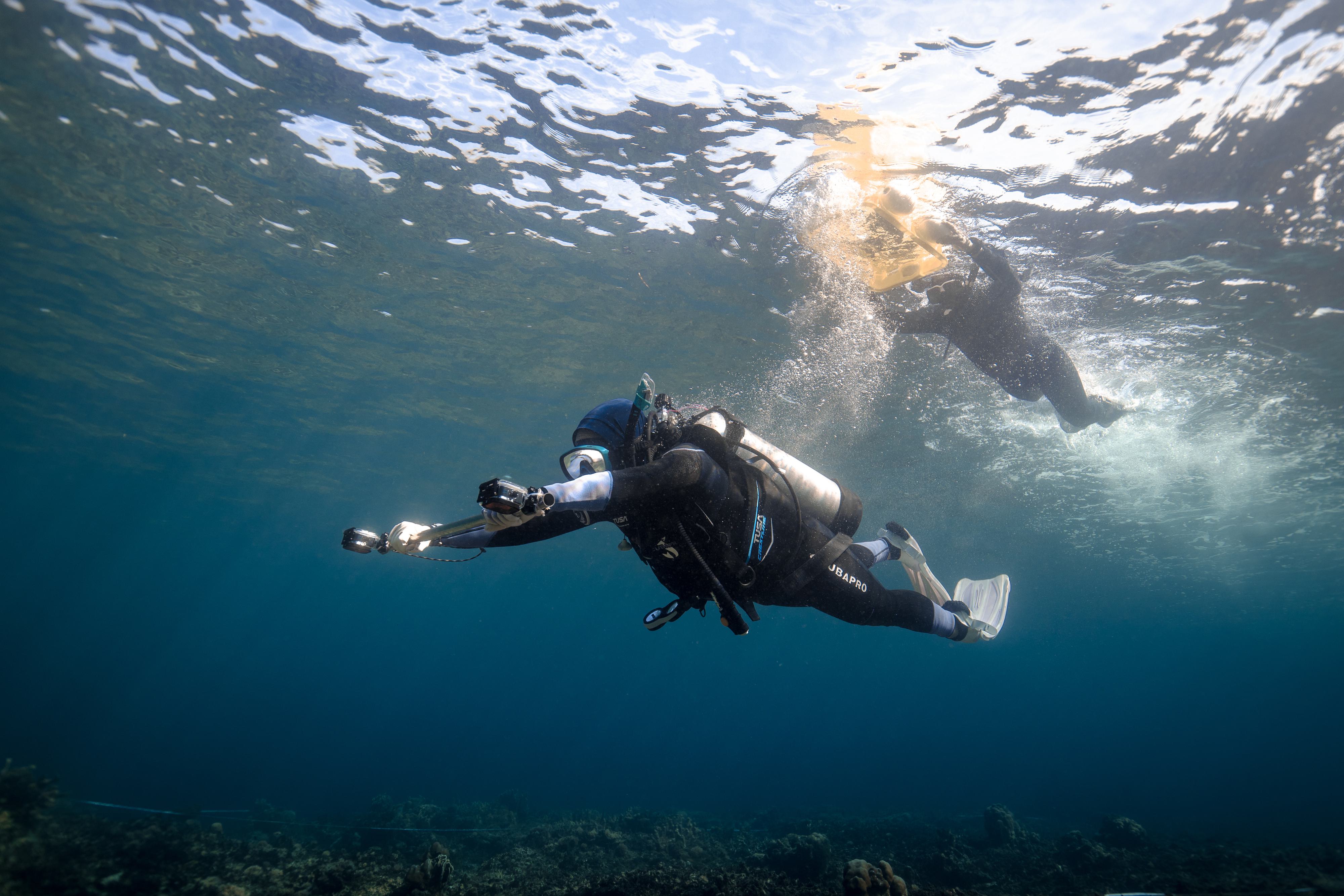
The growing scientific effort at HOPE Reef
As Hope Reef grows, so do the scientific efforts surrounding coral reef restoration and monitoring.
Article written by Mars Sustainable Solutions Science Officer and collaborating scientist, Ben Williams
Mars-led coral reef restoration of Indonesia’s Salisi’ Besar likely represents the single largest area of restored reef to be found anywhere across the globe. The unprecedented scale of this project offers a unique opportunity to understand the full impact of restoration on coral reefs. In May 2023, Mars welcomed a growing team of independent scientists to the project for the second time. Here, these researchers set about gathering data using a comprehensive range of techniques from 18 different sites around HOPE Reef. Read on to get an insight into what the team have been working on…
A key attribute of healthy reefs is their complex 3D structure, providing habitat for a diverse range of species and breaking up wave energy from storm events. To assess this, the team have employed an innovative technique known as ‘photogrammetry’. Through the collection of thousands of images, this technique is used to construct digital models of reef habitat. Led by Rindah Vida, a graduate student at IPB University in Indonesia, and with support from Jason Lynch at UCL, the team aim to use these models to quantify this complexity and compare it to that of nearby healthy and degraded reefs.
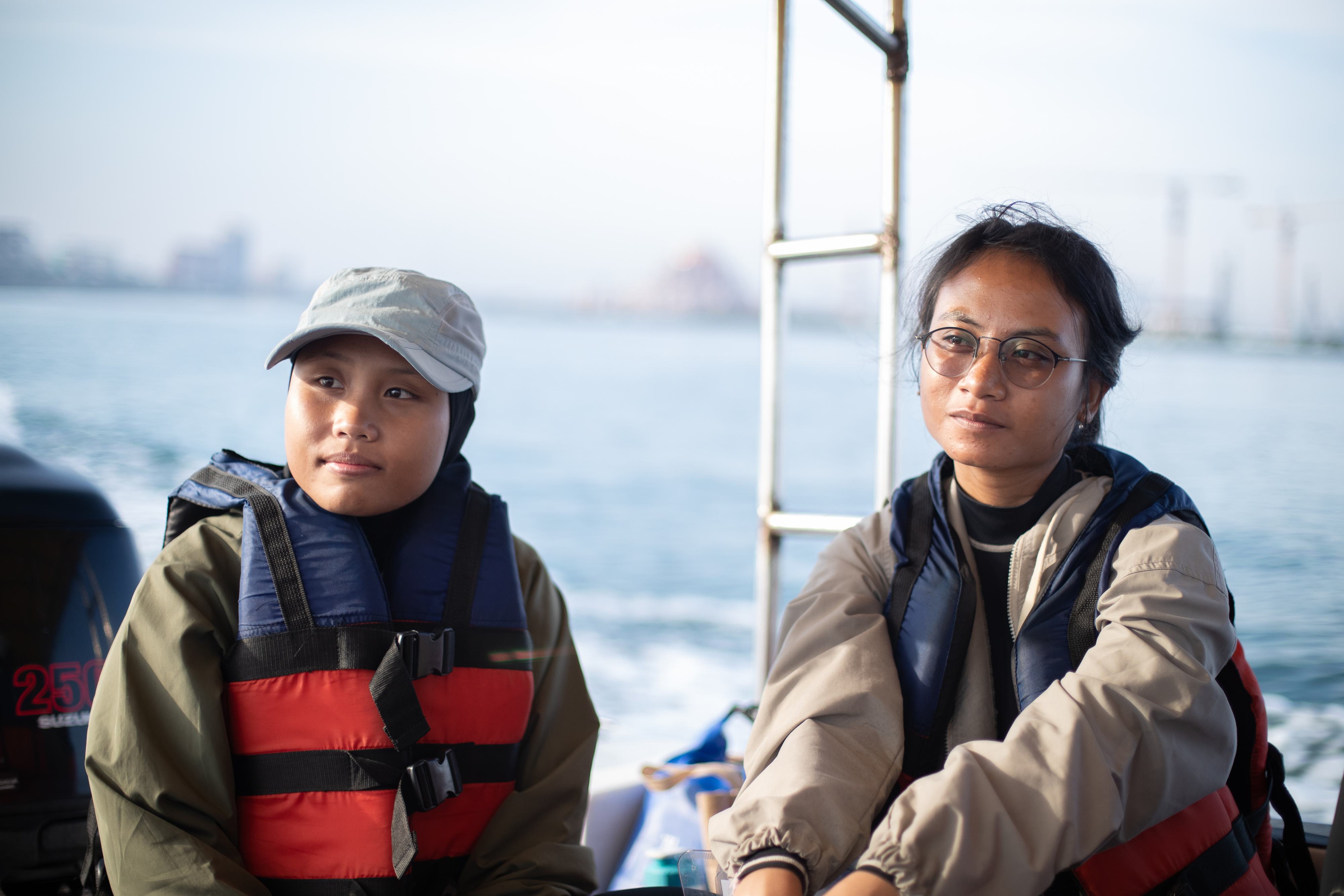
Introducing the collaborating Indonesian scientists and Sheba Hope Grows Advocates: Rindah & Gita
Gita Alisa, a colleague of Rindah at IPB, is also working on image-based data from these same sites. Gita’s work is based on capturing the aesthetic appeal of reef habitat, a highly valuable but understudied aspect of these ecosystems. This aspect is a key driver of both the tourism potential and cultural significance of reefs to communities living and working on these habitats. This research is in fact something you can support through completing this beautiful survey! Your response will help score the appeal of MARRS sites against controls.
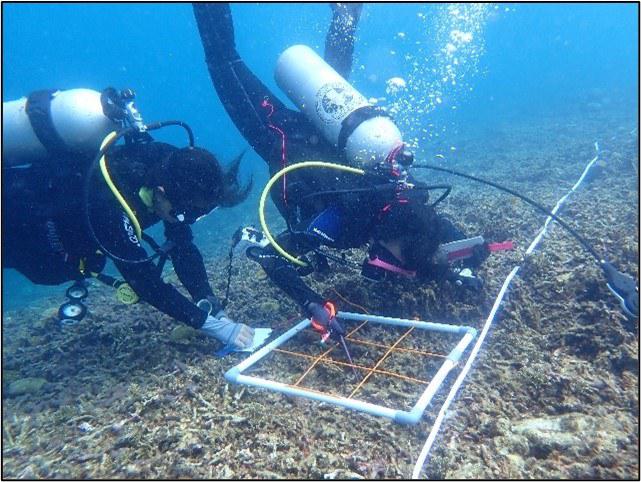
Gita and Mars Sustainable Solutions technician Agiel collecting data from a degraded site.
Another one of our earlier career scientists is Ben Williams, a PhD student from UCL in the UK. Ben has previously led work into the use of AI to track reef recovery on restored coral reefs, which he has now expanded in Indonesia and around the world. As well as acoustics, Ben collected a detailed dataset of video surveys from locations around HOPE Reef with the aim to advance automated surveying of the fish community.

Also visiting from the UK is Dr Ines Lange, based at the University of Exeter. Ines and other researchers at the University of Exeter established a world leading methodology for assessing the growth and erosion rates on coral reefs. This technique is called ReefBudget analysis and required intricate surveying of the benthic community during some of the longest dives of the expedition.
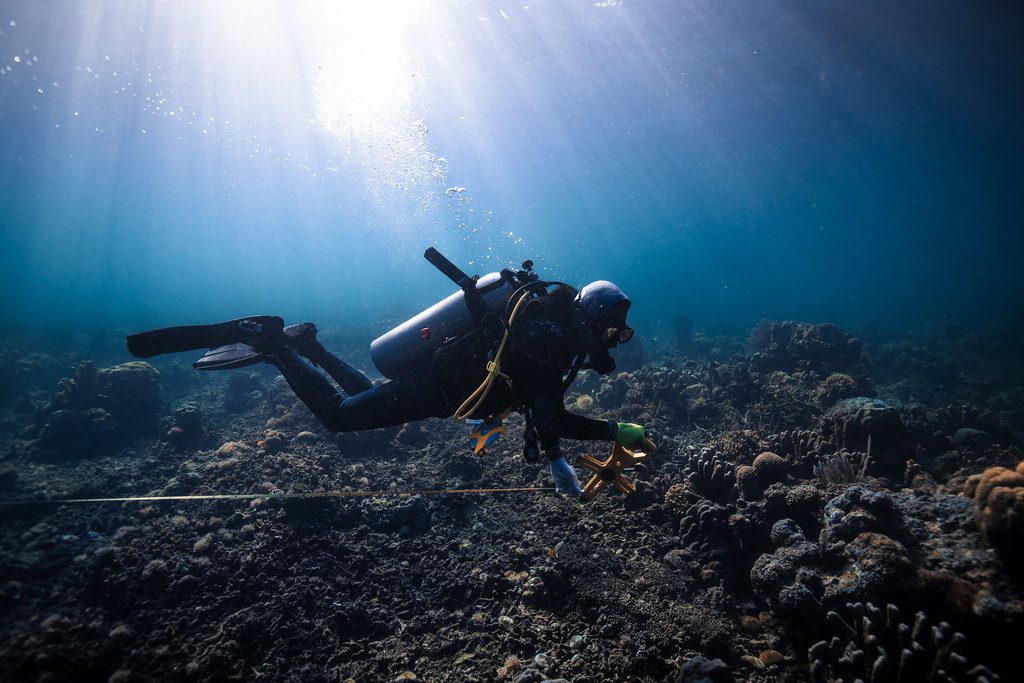
New additions to the team included Adib Mustofa a PhD student at the University of Southern California, and, Professor Nick Graham, a world leading coral reef ecologist based at Lancaster University in the UK. Adib’s project is focused on the genetic diversity of restored habitats. He aims to determine whether the coral community on these reefs is similar to that of naturally healthy sites or whether there are differences, an important attribute to ensure disease and bleaching resilience. Nick’s expertise lies in the fish community of coral reefs, which he used on a project focusing on the behavioural dynamics of fish present on healthy and restored reefs.
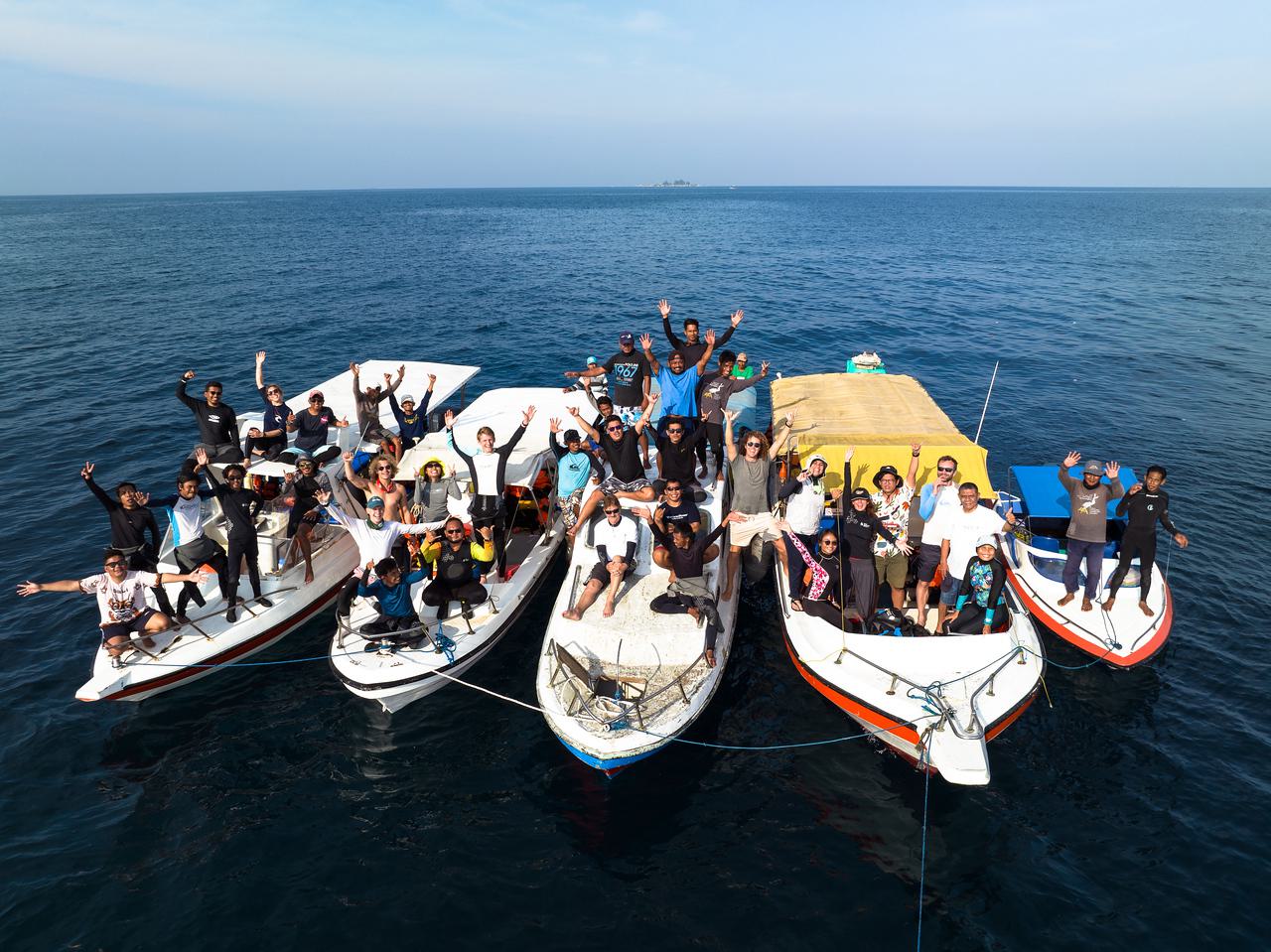
Collaborating scientists worked closely with Mars and the Bontosua Community Restoration Team, boat crews, a media team and more!
The overarching aim of these scientists is to understand how successfully restored corals reefs can return to a fully functioning reef ecosystem, and what aspects may need more time to recover. This effort is being led by two scientists, Dr Tim Lamont from the University of Lancaster and Dr Tries Razak from IPB University in Indonesia. The pair have begun to synthesize the extensive dataset of ecological survey data collected by Mars technicians around HOPE Reef which Tim aims to use in an in-depth analysis in conjunction with the wider teams growing datasets. Tries will be performing a similar task for restoration projects across Indonesia to highlight the best practices for growing restoration across the country and further afield.
We look forward to sharing the output of this team over the next few months and years as they set about expanding the scientific communities understanding of coral reef restoration!

